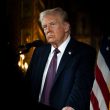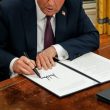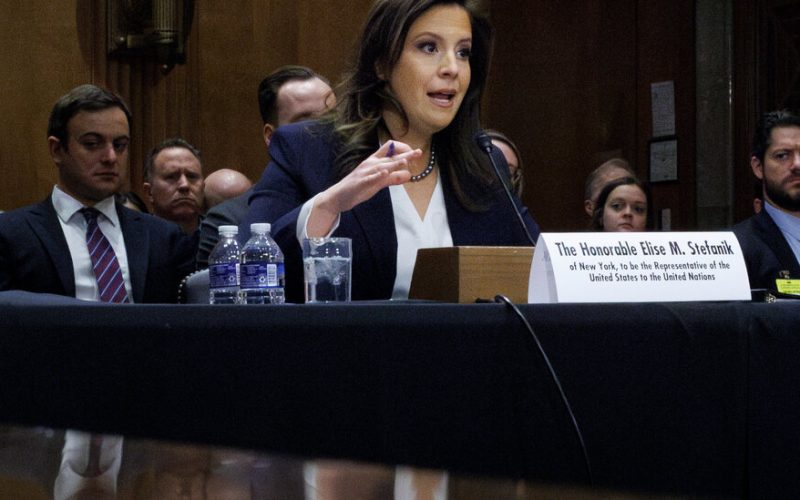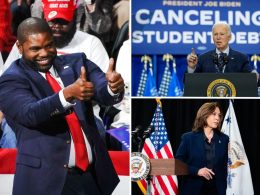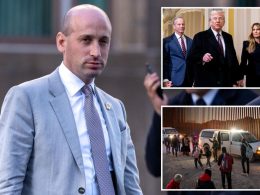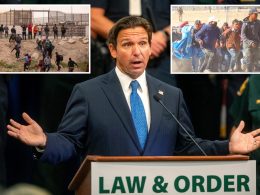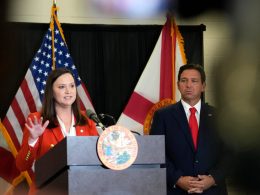Representative Elise Stefanik, Republican of New York and President Trump’s pick to serve as U.S. ambassador to the United Nations, pledged on Tuesday to combat antisemitism, counter Chinese influence, and, if necessary, leverage American contributions to force changes.
“I share President Trump’s vision of a U.N. reformed by strong, America-first, peace through strength,” Ms. Stefanik told senators during her confirmation hearing before the Senate Foreign Relations Committee, adding that “our tax dollars should not be complicit in propping up entities that are counter to American interests, antisemitic, or engaging in fraud, corruption, or terrorism.”
Republicans welcomed the selection of Ms. Stefanik, who began her congressional career as a moderate but evolved to become one of Mr. Trump’s staunchest backers in the House during his first term, as a person who would shake up the United Nations.
She is also expected to earn the support of a number of Democrats, many of whom disagree with her views, but who commended her for engaging with them nonetheless.
Ms. Stefanik has denounced the United Nations as a “den of antisemitism,” criticism she repeated frequently during her confirmation hearing, as she decried the United Nations for taking an unfairly critical approach to Israel. She added that Israel would be “a huge priority for me” if confirmed.
On several occasions, she also singled out the U.N. Relief and Works Agency, which is known as UNRWA and serves Palestinian refugees in Lebanon, Jordan, Syria, the Palestinian Territories and East Jerusalem, as too deeply infiltrated by Hamas to deserve U.S. support. U.N. investigators recently investigated allegations that some of its employees were involved in the Hamas-led attack on Israel on Oct. 7. 2023, and fired several people who were accused of participating.
In response to a question from Senator Chris Van Hollen, Democrat of Maryland, Ms. Stefanik said that she agreed with Israeli leaders who said that Israel had a Biblical right to the entire West Bank — a position at odds with the idea of a two-state solution, which traditionally has been a tenet of American Middle East policy.
She recommended that the United States establish an Abraham Accords caucus at the United Nations, a reference to the agreements established during Mr. Trump’s first term that normalized diplomatic relations between Israel and the United Arab Emirates, and between Israel and Bahrain. She praised those agreements, which required the countries to recognize Israel’s sovereignty, as the “greatest breakthrough for normalization in the Middle East in over a quarter of a century.”
Ms. Stefanik also stressed the importance of countering China’s influence at the United Nations, telling senators that the United States had to do more to build alliances with smaller nations, and that Washington and its allies needed to make a greater effort to run for leadership posts of its internal agencies — suggestions that received a warm reception from Democrats.
But she had less specific recommendations when it came to countering Russia, and holding Moscow to account for the invasion of Ukraine.
“I support President Trump’s commitment to bringing this war to a resolution to stop the killing,” she said in response to a question from Senator Jeanne Shaheen, Democrat of New Hampshire and the committee’s ranking member, adding that those efforts would “deter Russia in the long term.”
Ms. Stefanik’s approach to the United Nations was not all critical. She singled out the World Food Program and the United Nations Children’s Fund, known as UNICEF, for praise as agencies that were working well. She added, however, that she supported Mr. Trump’s decision to leave the World Health Organization, which he outlined in one of his first executive orders after taking office on Monday. Mr. Trump has been critical of the W.H.O. since the coronavirus pandemic.
She also said that while the United States should use its U.N. contributions to leverage change, or be serious about walking away from programs that did not align with U.S. interests as defined by the Trump administration, Washington needed to continue to engage with the body.
“We must invest in programs to strengthen our national security and deliver results to increase the efficacy of U.N. programs,” she said. “We must drive reform.”
